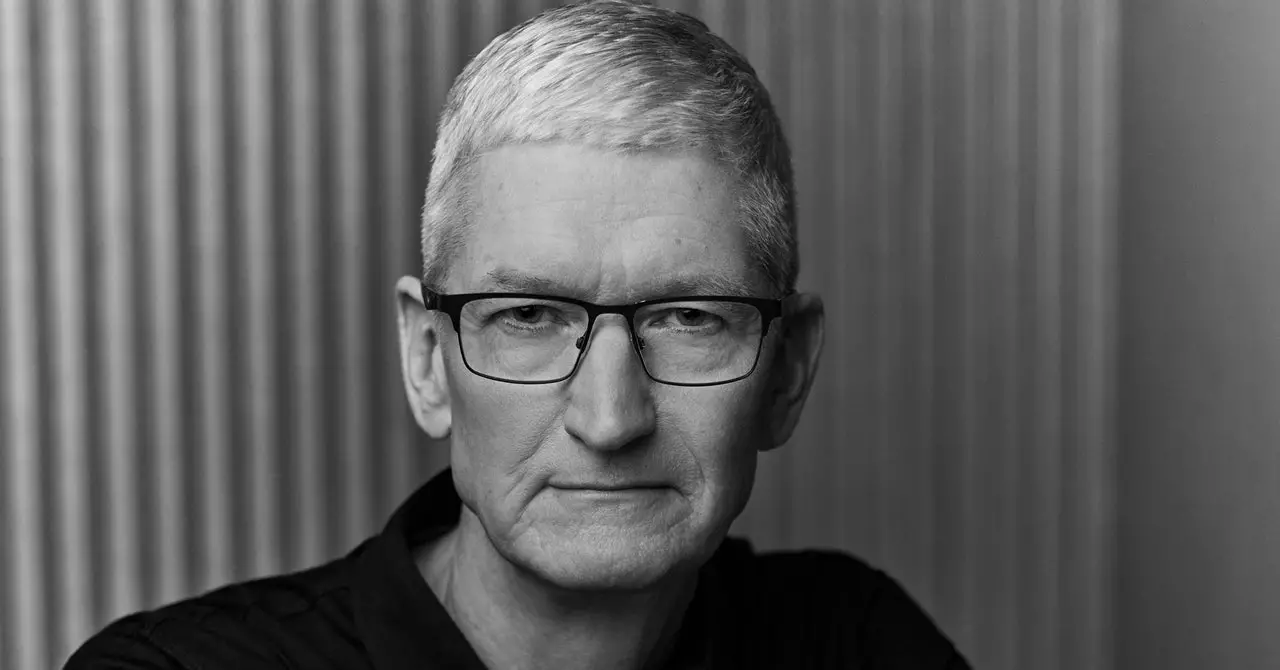The evolution of Apple’s corporate ethos can be illuminated through its innovative advancements, especially in the realm of artificial intelligence (AI). As Apple transitions from product-centric to intelligence-driven technologies, we must examine Tim Cook’s leadership vision, particularly in today’s rapidly changing tech landscape. Taking a closer look at Cook’s steadfast approach provides insight into what consumers can expect from Apple Intelligence, the company’s first major venture into generative AI.
Returning to Apple’s headquarters, Apple Park, which embodies the company’s breakthrough aspirations, is a thought-provoking experience. I still recall my first visit years prior to its completion, a time when raw materials filled the space instead of the vibrancy of curated landscapes. This architectural marvel, a product of a multi-billion-dollar investment, symbolizes a future-oriented vision, and Cook, with a rare passion, guided my tour. His words reverberated around the campus, emphasizing the importance of this bold investment as a commitment for the future—a decision meant to span not just years, but generations.
Today, Apple stands at an inflection point, face-to-face with seismic shifts in the technology sector. Rivals are racing ahead with innovative AI developments, creating chatbots that capture attention and transform markets. However, Apple’s chosen path defies the norm. Rather than following suit hastily, Cook strategically positions himself as a steady captain navigating these turbulent waters.
The AI landscape is charged with high stakes, where the titans of technology are pitted against each other for survival. Apple’s slower entrance into generative AI and machine learning has led to scrutiny by analysts and the press alike. While competitors like OpenAI and Google flaunt their advanced offerings, Apple has opted for a more deliberate approach, demonstrating a mindset akin to its co-founder Steve Jobs. Jobs believed in the principle of crafting perfection over speed; Cook echoes this sentiment by advocating for innovation that prioritizes utility and user experience over merely being the first to market.
Cook’s point of view is that technological advances should resonate with users on an emotional level. The iPod is an illustrative reference point—though not the first in the digital music landscape, it introduced a user-friendly interface that redefined how people connected with music. Similarly, Apple’s forthcoming AI feature promises to cater to the personalized needs of its audience, emphasizing both curiosity and excitement during my demonstrations of new capabilities.
Cook has consistently championed user privacy, a hallmark of his leadership, especially when introducing AI technologies. In the current consumer climate, where data security remains paramount, Apple pledges that its AI solutions will prioritize user data protection by executing computations on-device rather than relying on external cloud processing. This promise positions Apple as a premium conduit for AI innovations, setting it apart from competitors whose data practices are often viewed with skepticism.
During my discussions, Cook reiterated that, unlike typical tech giants, Apple’s AI tools would not compromise user privacy. By harnessing advanced machine-learning capacities within a secure environment, users can trust that their information stays safeguarded. This foundational principle aims to build a loyal customer base that knows their interests are respected. Moreover, the partnership with OpenAI allows Apple users to access powerful AI chat features in a secure ecosystem, demonstrating an exciting convergence of services while maintaining privacy.
In reflecting on my meeting with Cook, it became evident that his interpersonal talents heighten the Apple experience itself. His genteel demeanor strikes a stark contrast against the sometimes aggressive strategies of tech industry peers, creating an inviting and engaging dialogue. While he remains committed to buoying Apple’s public image, Cook deftly sidelines inquiries about strategic missteps—like the speculated demise of the smart-car initiative.
His calm articulation paired with a benign humility unshackles the conversation, revealing the profound belief he has in Apple’s products. Beyond product deliveries, Cook’s charisma and confidence shine through, building anticipation for the long-term vision Apple is shaping.
Ultimately, the landscape awaits Apple’s generative AI unveiling with bated breath. If history serves as a lesson, Apple is poised to re-establish itself as a leader in the tech realm once again. Although the forthcoming debut might not meet every expectation set by the market’s roar, Cook’s strong legacy suggests that he will adapt, refine, and evolve the offerings to ensure they resonate with consumers.
As Apple delineates its future with AI, we recognize not only the challenges at hand but the holistic approach that Tim Cook champions—a synthesis of innovation, user advocacy, and data integrity that could redefine how we interact with technology. The future indeed appears bright, yet it is the steadfastness amid uncertainty that will determine Apple’s ultimate trajectory in this AI age.

